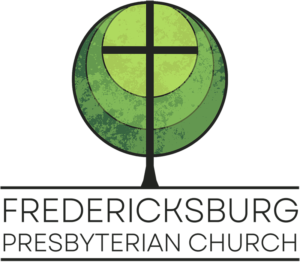Psalm 1 & Proverbs 3
So now we know what meditation literature is, and how we are supposed to interact with it. What does the Bible say about all of this? How does the Bible suggest we read the Bible?
The books of Psalms is a collection of poetry and songs, which are reflections on a wide variety of topics. The very first Psalm is a reflection on what it’s like to live a good life. Not a virtuous life, but a happy, peaceful, and fulfilling life. The book of Proverbs is one of the “Wisdom Books” in the Bible, which, similar to Psalms, is a reflection on many different topics insofar as they relate to wisdom. The first half of Proverbs is a collection of speeches given by “Lady Wisdom,” who is the personification of wisdom. Let’s take a look at an excerpt from each:
“How happy is the one who does not walk in the advice of the wicked or stand in the pathway with sinners or sit in the company of mockers!
Instead, his delight is in the Lord’s instruction, and he meditates on it day and night. He is like a tree planted beside flowing streams that bears its fruit in its season, and its leaf does not wither. Whatever he does prospers.”
“My son, don’t forget my instruction, but let your heart keep my commands; for they will bring you many days, a full life, and well-being.…Happy is a man who finds wisdom and who acquires understanding, for she is more profitable than silver, and her revenue is better than gold.…Her ways are pleasant, and all her paths, peaceful. She is a tree of life to those who embrace her, and those who hold on to her are happy.” |
Psalm 1:1-3
Proverbs 3:1-2, 13-14, 17-18
There are two words that I think are worth digging into a little deeper in these passages – instruction and wisdom. I think defining how the original writers used these words will help us understand the author’s intent with these passages:
Even if you don’t know any Hebrew, you probably already know the Hebrew word for instruction: it’s torah (pronounced: tow-RAH – תּוֹרָה ). Today we refer to the first five books of the Bible as “the Torah” because they contain over 600 different laws and practices that God instructs the Israelites to follow, though these books are so much more than a list of laws. They are a unified narrative about how humans just can’t follow God’s torah (instructions). Maybe we can dig into that another time, but as it relates to Psalm 1 and Proverbs 3, just remember that the word instruction refers to God’s wisdom as it is revealed to us in scripture.
Next, the Hebrew word for wisdom (pronounced: hok-ma – חָכְמָה ). In Hebrew, wisdom is actually the same word used for skill. Throughout the Bible, it is used in reference to those who make garments, metalsmiths, weavers, engravers, sailors, embroiderers, soldiers, and craftsmen in general. The way the ancient Hebrews saw it, wisdom was something you learned in the same way one might learn to be a carpenter, painter, or musician. In their mind, wisdom isn’t something you gain passively through age, it is gained by seeking it out with patience and practice. And how do these two excerpts tell us we ought to seek God’s wisdom? By diligently studying and pondering the scriptures. Like I wrote last week, because scripture is God-breathed (2 Timothy 3:16-17) knowing the scriptures more intimately is knowing Him more intimately.
These two passages tell us to dwell on God’s word, constantly engaging with it, meditating on its meaning, and regularly returning to it. In doing so, we find both delight and wisdom. It’s not just about reading it once a day, then moving on, is it? No! It’s all about really pondering what it means. It’s about bathing your mind in the scriptures, and allowing it to soak up God’s wisdom revealed in scripture.
This is where the name Taking Root comes from. By delighting in and meditating on the Lord’s torah, we seek to become “like a tree planted beside flowing streams.” Let’s dig in together, taking root beside flowing streams, meditating on scripture, seeking wisdom in His word, and delighting in it together.
Matt




